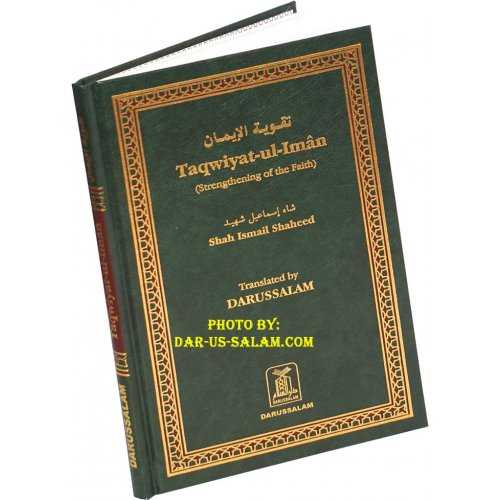What is Sufism (Tasawwuf)?
Praise be to Allah. Today we will discuss, briefly, ‘What is Sufism (Tasawwuf)?
It is important for us to understand, firstly, that the words “Tasawwuf” and “Sufism” are modern terms which refer to something that is not automatically approved of in the Shari’ah as the words imaan (faith), Islam and ihsan are. Neither is it automatically condemned like the words kufr, fusuq (immorality) and ‘isyan (disobedience, sin).
In such cases, we need to find out more about what is meant by such words before we can pass a comment.
Shaykh al-Islam Ibn Taymiyah (may Allah have mercy on him) said:
“The words al-faqr and al-tasawwuf (i.e., Sufism ) may include some things that are loved by Alaah and His Messenger, and these are things that are enjoined even if they are called faqr or tasawwuf, because the Quran and Sunnah indicate that they are mustahabb and that is not altered if they are called by other names.
That also includes actions of the heart such as repentance and patience. And it may include things that are hated by Allah and His Messenger, such as some kinds of belief in incarnation and pantheism, or monasticism that has been innovated in Islam, or things that go against shari’ah and have been innovated, and so on.
The Most Comprehensive and Authentic Explaination of the Quran!  Purchase the complete Tafsir Ibn Kathir (10 Vol Abridged) By Dar-us-Salam Publications. |
These things are forbidden no matter what names they are given… And it may include limiting oneself to a certain style of clothing or certain customs, ways of speaking and behaving, in such a way that anyone who goes beyond it is regarded as an outsider, although this is not something that has been stipulated in the Quran or Sunnah; rather it may be something that is permissible or it may be something that is makruh, and this is a bid’ah that is forbidden.
This is not the way of the friends of Allah (awliya Allah); such things are innovations and misguidance that exist among those who claim to follow the Sufi path.
Similarly, among those who claim to be servants of knowledge there are innovations that involve beliefs and words that go against the Quran and Sunnah, using phrases and terminology that have no basis in shari’ah. Many such things happen among those people.
The wise believer agrees with all people in that in which they are in accordance with the Quran and Sunnah and obey Allah and His Messenger, but he does not agree with that in which they go against the Quran and Sunnah and disobey Allah and His Messenger.
He accepts from every group that which was taught by the Messenger… when a person seeks the truth and justice, based on knowledge, he is one of the successful friends of Allah and His victorious party…” (Al-Fatawa, 11/280-290)

Sufism nowadays
But what Shaykh al-Islam said about the view of Sufis depending on their situation is almost too theoretical for our times, when the objectionable matters that he referred to have become part of the path of those who call themselves Sufis nowadays, in addition to the different occasions they celebrate such as the Mawlid, and their exaggeration about their living shaykhs, and their attachment to shrines and graves, where they pray and circumambulate the graves and make vows to them, and other well-known practices of theirs.
Because of these matters, the correct approach now is to warn against them with no reservations. This is what was agreed upon by the Standing Committee in their answer to a question about the ruling on the Sufi tariqas that exist nowadays. They said:
“Usually those that are called Sufis nowadays follow bid’ahs (innovations) that constitute shirk, as well as other kinds of bid’ah, such as when some of them say “Madad ya sayyid (Help, O Master)”, and call upon the qutubs (“holy men”), and recite dhikr in unison using names which Allah has not called Himself, like saying “Huw, Huw (He, He)” and “Ah, Ah (a contraction of the word ‘Allah’)”. Whoever reads their books will be aware of many of their innovations that constitute shirk, and other evils.”
Shaykh al-Islam Ibn Taymiyah (may Allaah have mercy on him) said:
The word al-soofiyyah (Sufism) refers to wearing woollen clothes; this is the correct meaning. It was said that it comes from the word safwat al-fuqaha’ (the elite of the fuqaha’) or from Soofah ibn Add ibn Taanijah, an Arab tribe that was known for its asceticism, or from Ahl al-Suffah (poor Muslims in Madeenah at the time of the Prophet (peace and blessings of Allaah be upon him) who used to stay in the mosque), or from al-Safa (the mountain in Makkah), or from the word al-safwah (meaning elite), or from the phrase al-saff al-muqaddam bayna yaday Allaah (the foremost rank before Allaah). All of these views are weak (da’eef); if any of them were true then the word would be saffi or safaa’i or safawi, not sufi.
Majmoo’ al-Fataawa, 11/195
Sufism (tasawwuf) did not appear until after the first three generations which the Messenger of Allaah (peace and blessings of Allaah be upon him) praised when he said, “The best of mankind is my generation, then those who come after them, then those who come after them…” (narrated by al-Bukhaari, 2652; Muslim, 2533; from the hadeeth of Ibn Mas’ood).
Shaykh al-Islam Ibn Taymiyah (may Allaah have mercy on him) said:
With regard to the word soofiyyah (Sufism), it was not known during the first three generations, rather it became known after that.
Majmoo’ al-Fataawa, 11/5
This tareeqah and its like are among the innovated ways that go against the Qur’aan and Sunnah and the way followed by the best generations. All the shaykhs of these tareeqahs have made up their own wirds (phrases to be uttered as dhikr), hizb (books of du’aa’ to be read daily by their followers) and ways of worship by which each of them may be distinguished from the others; this goes against sharee’ah and divides the ummah.
Allaah has blessed this ummah by perfecting its religion and completing His Favour upon it, so everyone who comes up with an act of worship or a way that was not brought by sharee’ah is effectively rejecting what Allaah has said and accusing the Prophet (peace and blessings of Allaah be upon him) of betraying the trust.
Along with this innovation of theirs, they may also be lying by claiming that they received their tareeqah from the Prophet (peace and blessings of Allaah be upon him), or that they are following the path and guidance of the Rightly-Guided Caliphs (al-khulafa’ al-raashideen).

The scholars of the Standing Committee were asked:
Is there any such thing in Islam as the numerous tareeqahs like the Shaadhilyyah, Khalwatiyyah etc? If there is such a thing, what is the evidence for that? What is the meaning of the verses in which Allaah says (interpretation of the meaning):
“And verily, this is My straight path, so follow it, and follow not (other) paths, for they will separate you away from His path. This He has ordained for you that you may become Al‑Muttaqoon (the pious)”
[al-An’aam 6:153]
“And upon Allaah is the responsibility to explain the Straight Path. But there are ways that turn aside (such as Paganism, Judaism, Christianity). And had He willed, He would have guided you all (mankind)”
[al-Nahl 16:9]
What are the ways that separate people from the path of Allaah, and what is the way of Allaah? What is the meaning of the hadeeth narrated by Ibn Mas’ood, according to which the Messenger (peace and blessings of Allaah be upon him) drew a line and said, “This is the path of guidance,” then he drew lines to its right and another to its left and said, “These are other paths and on each path there is a devil calling people to it”?

They answered:
There is no such thing in Islam as the tareeqahs that you mentioned, or anything else like them. What there is in Islam is what is indicated by the two verses and the hadeeth that you quoted, and what was indicated by the hadeeth in which the Prophet (peace and blessings of Allaah be upon him) said: “The Jews split into seventy-one sects, and the Christians split into seventy-two sects. My ummah will split into seventy-three sects, all of which will be in Hell except one.” It was asked, “Who are they, O Messenger of Allaah?” He said, “Those who follow the same path as I and my companions are on today.” And he (peace and blessings of Allaah be upon him) said, “A group among my ummah will continue to follow the truth and to be victorious, and they will not be harmed by those who forsake them or oppose them, until the command of Allaah comes to pass when they are like that.” The truth lies in following the Qur’aan and the saheeh, unambiguous Sunnah of the Prophet (peace and blessings of Allaah be upon him). This is the path of Allaah, this is the Straight Path. This is the straight line mentioned in the hadeeth of Ibn Mas’ood, and this is what was followed by the companions of the Prophet (peace and blessings of Allaah be upon him) (may Allaah be pleased with them and with their followers among the early generations (salaf) of this ummah, and with those who follow their path). All other tareeqahs or groups are the paths mentioned in the verse (interpretation of the meaning):
“… and follow not (other) paths, for they will separate you away from His path…”
[al-An’aam 6:153]

Don’t forget to comment & share. Also please click our ads, they pay the bills. jazakallahu khayr.

